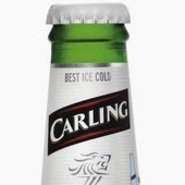Carling brewer polishes off zero waste target
 Carling brewer Molson Coors is set to achieve zero waste to UK landfills by the end of the year, the company’s latest sustainability report reveals.
Carling brewer Molson Coors is set to achieve zero waste to UK landfills by the end of the year, the company’s latest sustainability report reveals.After more than halving the volumes sent to landfill from 2007 to 2011, its diversion rate currently stands at just over 99 per cent, according to the report published earlier this week. As a result, the company says it recycled or reused almost 48,000 tonnes of waste during 2011.
As well as targeting landfill reduction, Molson Coors focused on other improvements, including an innovative film wrap packaging used for small packs of Carling instead of the more traditional cardboard packaging. A £6.3m investment also enabled the weight of secondary packaging to be reduced by 63 per cent and resulted in a carbon emission reduction of four per cent.
Over 2012, the company aims to fulfil its commitment to reduce both energy and water use 15 per cent by the end of 2012. Molson says water and electricity use fell two per cent last year and reports a 21 per cent improvement in carbon emission efficiency since 2008, equivalent to a 20 per cent absolute reduction.
To help meet the target, the company has built a waste water treatment plant at its brewery in Tadcaster, Yorkshire, which ensures each pint of beer only takes 3.3 pints of water to make. Biogas produced from the plant has been used to replace about 20 per cent of the natural gas used at the brewery, saving further emissions and cutting costs.
In addition, a £1m anaerobic digestor at Sharp’s Brewery in Cornwall, part of a £5m renovation, turns the brewery’s waste products into biogas to provide heat and power at the site, while reducing the liquid waste being sent to the local water treatment plant by 80 per cent.
The results come as Molson Coors announces ambitious global environmental targets, included a 25 per cent improvement on energy efficiency and 20 per cent improvement on water efficiency by 2020, based 2011 levels, to which its UK operations are due to contribute 22 per cent on energy and 15 per cent on water.
“We’re proud that we are well on course to achieve zero-landfill waste this year but we are not about to rest on our laurels,” said Lee Finney, supply chain director at Molson Coors. “We understand the need to build on this success, which is why we are announcing ambitious targets for 2020 in water and energy efficiency across our whole supply chain.”
You can return to the main Market News page, or press the Back button on your browser.

